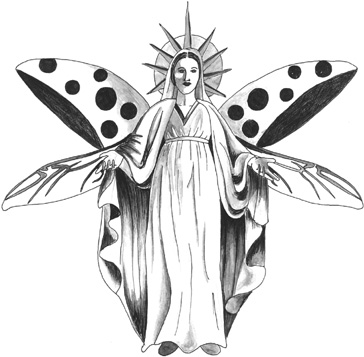
LADYBIRD, ladybird, fly away home,
Your house is on fire and your children are gone;
All except one who is called little Ann,
For she crept under the frying pan.
‘Ladybird, Ladybird’ is, on the face of it, a gentle rhyme to sing to a black-and-red-spotted beetle if one happens to land upon your hand – always considered lucky. But if you read it carefully, it becomes more sinister. Why would anyone want to tell the ladybird her family is being destroyed in a fire, especially when it is most unlikely to be true?
For centuries, farmers and gardeners alike have actively encouraged ladybirds, as they eat aphids that might otherwise damage plants and crops. Hence one interpretation of the rhyme is that it is to encourage ladybirds to leave their land at the end of the season before the stubble is set on fire to make the fields ready for the next crop. But it appears that there’s more to the rhyme than that…
The word ladybird in fact derives from the Catholic term for the Virgin Mary, Our Lady’. Hence some historians believe the rhyme offered a warning to Catholics who refused to attend Protestant services following enforcement of the Acts of Uniformity (1549-59). Instead, many would hold Mass in non-church settings, often outdoors in the
countryside or in a barn. Inevitably, such defiance was met with violence and many Catholic priests were burned at the stake for continuing to practise their faith so openly (see Goosie, Goosie Gander).